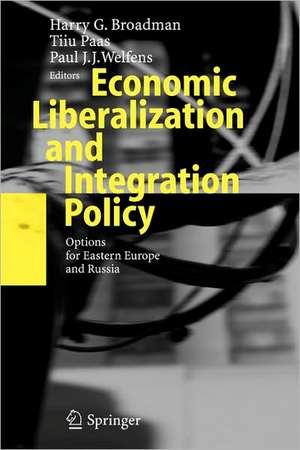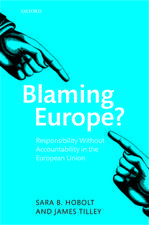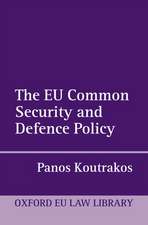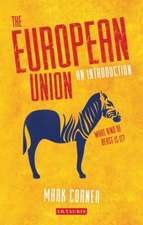Economic Liberalization and Integration Policy: Options for Eastern Europe and Russia
Editat de Harry G. Broadman, Tiiu Paas, Paul J.J. Welfensen Limba Engleză Paperback – 11 feb 2010
Preț: 757.31 lei
Preț vechi: 923.55 lei
-18% Nou
Puncte Express: 1136
Preț estimativ în valută:
144.92€ • 150.39$ • 121.13£
144.92€ • 150.39$ • 121.13£
Carte tipărită la comandă
Livrare economică 17-31 martie
Preluare comenzi: 021 569.72.76
Specificații
ISBN-13: 9783642063367
ISBN-10: 3642063365
Pagini: 368
Ilustrații: VI, 358 p. 93 illus.
Dimensiuni: 155 x 235 x 19 mm
Greutate: 0.51 kg
Ediția:Softcover reprint of hardcover 1st ed. 2006
Editura: Springer Berlin, Heidelberg
Colecția Springer
Locul publicării:Berlin, Heidelberg, Germany
ISBN-10: 3642063365
Pagini: 368
Ilustrații: VI, 358 p. 93 illus.
Dimensiuni: 155 x 235 x 19 mm
Greutate: 0.51 kg
Ediția:Softcover reprint of hardcover 1st ed. 2006
Editura: Springer Berlin, Heidelberg
Colecția Springer
Locul publicării:Berlin, Heidelberg, Germany
Public țintă
ResearchDescriere
After the 1998 Russian economic crisis, there are new opportunities for sustained growth in many countries of the former Soviet Union. Against this backdrop, the authors of this book analyze the dynamics of macroeconomic and structural developments in Eastern Europe and Russia, with special attention paid to problems of international and national integration, "Dutch disease" and natural resource dependency, and distortions in institutional reforms. The analysis also sheds light on how these problems have implications for cooperation among OECD-countries. A critical focus is on institutional adjustment and learning, human capital formation, trade and foreign investment. The political economy challenges of stability and growth in the region are highlighted. New empirical findings and comparative policy analysis - including in the field of natural resource policy - are major elements in this publication.
Cuprins
The Regional Dimensions of Barriers to Business Transactions in Russia.- Macroeconomic Aspects of Opening up, Unemployment and Sustainable Growth in Transition Countries.- Sustainability of Growth and Development of Financial System in Russia.- The Transmission of Economic Fluctuations Between Russia, Europe, Asia and North America.- U.S.-Russian and U.S.-Ukrainian Trade Relations and Foreign Direct Investment Effect.- Inflation in the New Russia.- Russian Fuel and Energy Sector: Dynamics and Prospects.- Russia’s Energy Strategy and the Energy Supply of Europe.- Natural Resources and Economic Growth: From Dependence to Diversification.- Corruption and Public Investment Under Political Instability: Theoretical Considerations.- Institutional Issues of Transport Policy Implementation in Russia.- Human Capital and Growth: A Panel Analysis for the EU-15, Selected Accession Countries and Russia.- Telecommunications, Trade and Growth: Gravity Modeling and Empirical Analysis for Eastern Europe and Russia.- Russia’s Integration Into the World Economy: An Interjurisdictional Competition View.- Panel Discussion: Perspective on Russia.
Caracteristici
Includes supplementary material: sn.pub/extras














